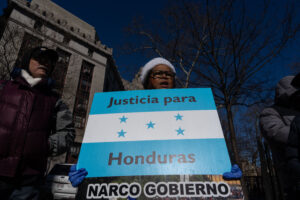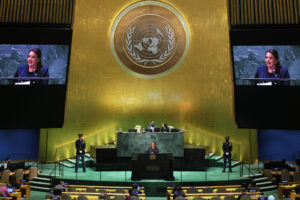Honduras has been experiencing a wave of crime and violence, and its homicide rates are the highest in the world, according to the UN. The violence comes as a result of various factors, ranging from petty street crime and extortions to gang-related violence, organized criminal activity, and political violence. The situation is further exacerbated by rampant impunity, which worsened in the wake of the 2009 coup.
The situation is complex, but one of the principle obstacles to combating violence in Honduras is police corruption and police involvement in crime. Corrupt police officers have moved beyond taking bribes or tipping off criminal groups and are participating in (and in some instances directing) criminal operations and killings.
Addressing the urgent need to tackle the deep-rooted nexus between police and criminal organizations and carry out an effective purge and reform of the police and other criminal justice institutions will be a huge challenge. The recent creation of the Commission for the Reform of Public Security (Comisión de Reforma de la Seguridad Pública), a fully independent body charged with overseeing the clean-up of the police and with developing proposals for the reform of the public security system is a step in the right direction. Its effectiveness and success will largely depend, however, on the commitment and political will of the authorities to tackle the problem.
WOLA recently invited Leticia Salomón, a citizen security expert at the National Autonomous University of Honduras (UNAH), to Washington, D.C. to discuss the citizen security situation in Honduras and ways to address the increasing levels of crime and violence. Salomón currently serves as part of the advisory group to the Director of the UNAH, Julieta Castellanos, to promote the reform of the national police and modernization of the judicial system.
In this WOLA video podcast with Leticia Salomón, she gives a panorama of the security challenges facing Honduras. She details the responsibilities of the Commission and how its work could help address underlying problems of police corruption, impunity, and institutional weakness in the country. She also explains how civil society at the international and national level in Honduras can be constructively engaged as the Commission carries out its three-year mandate to encourage its work and ensure accountability within the police and judicial sector.


